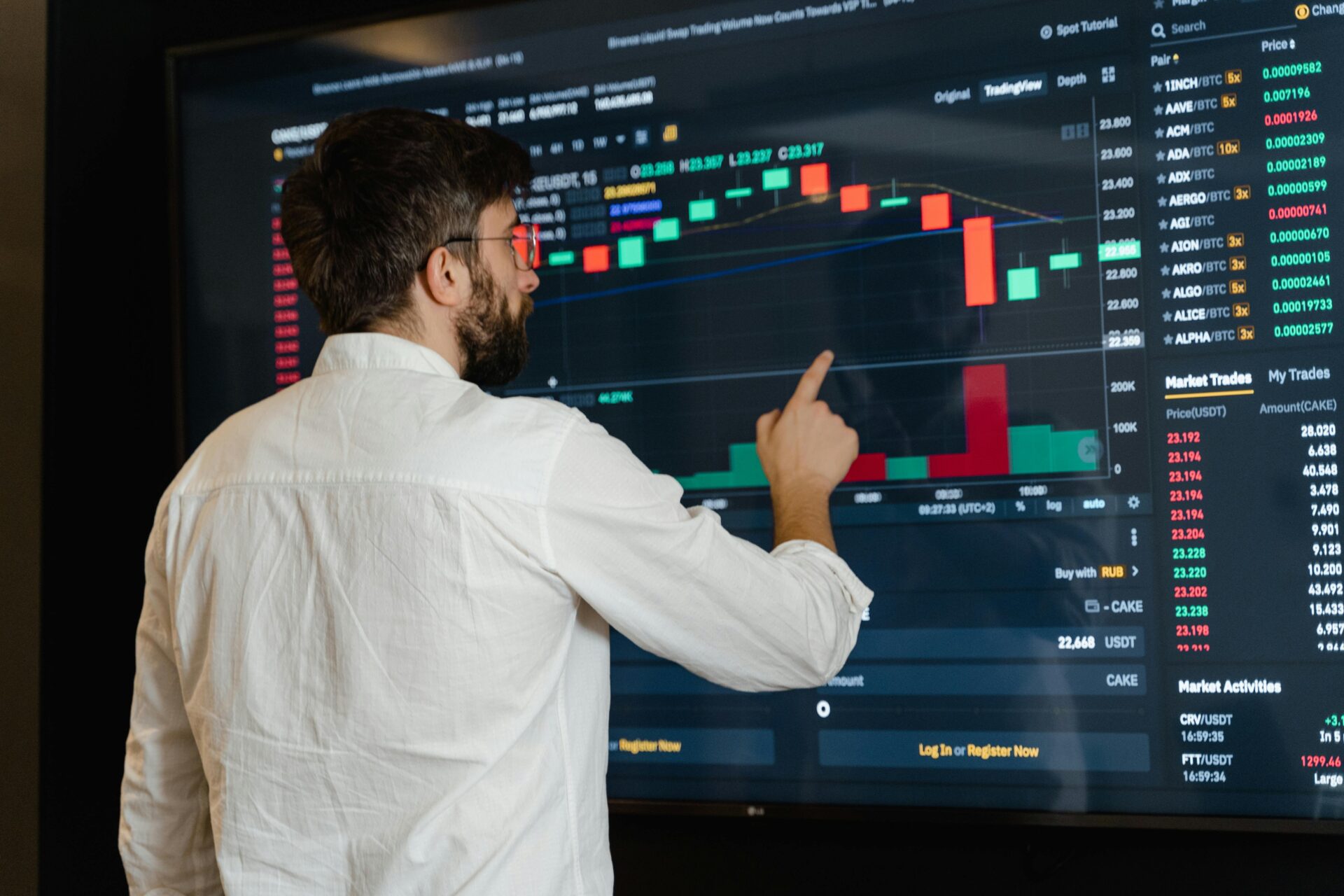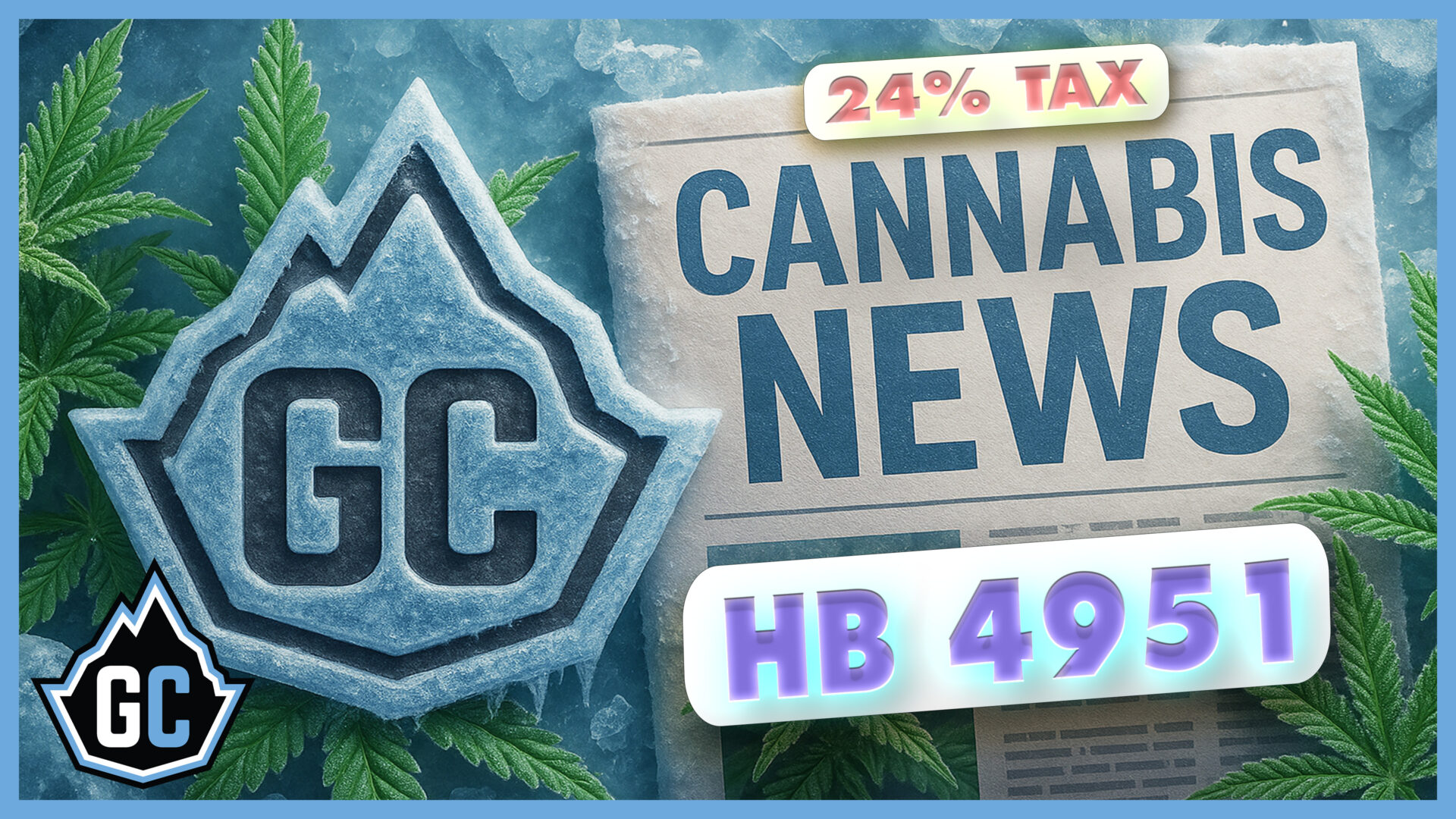Michigan’s 24% Cannabis Tax Proposal: Will Higher Weed Prices Fix Our Roads or Break the Market?
- Magic Plants
- September 29, 2025
- No Comments
What the 24% Cannabis Tax in Michigan Does and How To Weigh Your Vote
MICIA: Should We Raise Michigan Cannabis Prices to Fix Our Roads?
Michigan lawmakers just advanced a new plan that could reshape the state’s booming cannabis industry: a 24% wholesale excise tax pitched as a way to fund Michigan’s crumbling roads.
The proposal, backed by some legislators but strongly opposed by the Michigan Cannabis Industry Association (MICIA), could raise more than $420 million a year, but at what cost?
Sponsored Content
If approved, Michigan’s legal cannabis prices could surge by nearly 30%, putting small dispensaries and cultivators under pressure while pushing many consumers back toward the illicit market. Here’s a breakdown of what’s at stake for everyday consumers, companies like Glacier Cannabis, and the future of Michigan’s cannabis economy.
Where things stand right now
• Adult-use sales: Taxed 10% at retail as an excise tax, plus Michigan’s 6% sales tax.
• Medical patients: Do not pay the 10% excise tax but do pay the 6% sales tax.
• Sales tax: Applied on top of the 10% excise tax at checkout, per Treasury guidance.
What changed this week
On September 25, 2025, the Michigan House passed HB 4951 as part of a broader road-funding package. The bill would add a new 24% wholesale excise tax on adult-use cannabis transfers to retailers.
That includes vertically integrated operators where the “wholesale price” would be defined by rule as an average wholesale price. HB 4951 has only passed the House. It still needs the Senate and the Governor to sign before becoming law. The House Fiscal Agency’s summary estimates about $420M per year in new revenue, with collections to start January 1, 2026 if enacted.
 House Bill 4951 of 2025 on the Michigan Legislature website
House Bill 4951 of 2025 on the Michigan Legislature website
MICIA’s position in plain English
The Michigan Cannabis Industry Association (MICIA) has argued that new wholesale cannabis taxes risk shrinking the legal market and reviving illicit sales.
Their policy memo this month also notes lawmakers have floated wholesale tax rates higher than 24% in some discussions. MICIA proposes alternative revenue sources like taxing low-dose hemp beverages and stronger enforcement against illicit THC products.
Michigan consumers weigh in
• What you pay now
If the pre-tax shelf price is $100, today you pay:
$10 excise + $6.60 sales tax on the $110 taxable base = $116.60 out the door
The Treasury treats the 6% sales tax as calculated on the price plus the 10% excise.
• What you pay if a 24% wholesale tax is added
It’s a bit of a tricky questions because there is no single “correct” pass-through number. To illustrate, assume a retailer’s pre-tax shelf price is largely driven by the wholesale cost.
If wholesalers add 24% and retailers pass it along, a rough stack looks like:
- Wholesale layer: +24% before it ever hits the shelf
- Retail layer: +10% excise at checkout
- Sales tax: +6% on the price that already includes the 10% excise
Let’s do the math!
Using the same $100 pre-tax shelf price example and assuming the wholesale tax fully flows through to the shelf price, the out-the-door could land near $131 to $145 depending on margins and competitive pressure.
In short, to get better roads in Michigan we’d be paying a potential increase of $116 to $131 (or up to $145)
That’s a $15 to $29 difference increase on every $100 you’re paying at the dispensary counter.
So how much more is it, really?
If you pay $400 every month, at a $30 increase per $100, that’s a $60 to $120 total increase. from $460 to $520. For some Michigan tokers, I estimate this will be too much, even if the roads are paved in gold, though how many will agree is yet to be seen.
The House fiscal note and local reporting warn that higher final prices could push some buyers back to the illicit market where there is no tax, no testing, and more community risk.

Consumer tradeoffs to consider
• Roads funding vs affordability: Supporting more road dollars may mean paying more per eighth or cart.
• Legal market strength vs illicit leakage: Higher taxes widen the price gap with unregulated sellers.
• Access and equity: If shops close under margin pressure, product choice and proximity drop, which hits rural and lower-income buyers first.
Licensed operators also express their opinions:
Financial mechanics
• The 24% tax is imposed at wholesale, which increases cost of goods sold into retail.
• The 10% retail excise and 6% sales tax still apply at checkout.
• Vertically integrated operators would have to compute a deemed “average wholesale price” for in-house transfers, which adds accounting and audit complexity.
Business impacts you will hear from operators
• Margin compression: Many cultivators and shops already operate on thin margins due to price deflation and competition. Layering 24% at wholesale likely squeezes cash flow and could accelerate consolidation or closures.
• Compliance complexity: Tracking and documenting “average wholesale price” for self-transfers becomes a new audit risk.
• Demand elasticity: If final prices rise, volume may fall. Revenue models that assume static demand can overstate tax receipts and understate closures.
What is best for both consumers and the legal market?
A durable policy thread in other states is simple, transparent taxes that keep the legal market price-competitive with illicit channels. Michigan today has a comparatively simple 10% retail excise plus 6% sales tax and a strong legal market footprint. A large wholesale layer risks undermining that.
If roads funding is the priority, consumer and industry groups suggest alternatives that do less damage to legal-market demand, for example:
• Narrow excise changes at the retail level with thresholds or caps
• Targeted enforcement and fee recovery from illicit THC products
• Modest, separate excise on low-dose hemp beverages that currently face lighter treatment
MICIA’s memo outlines variants of these ideas. Lawmakers can also require rigorous post-implementation reviews to ensure projections match reality and adjust quickly if closures or illicit market share jump.

Key dates and what your vote means
• September 25, 2025: HB 4951 passed the Michigan House. It is not law yet. The Senate must act, and the Governor must sign for it to take effect on the schedule described.
• Near term voting: Many communities have local elections Tuesday, November 4, 2025. Your ballot content varies by city or township. Statewide road-tax changes like HB 4951 are legislative. You are not voting on HB 4951 directly unless the Legislature or your locality puts a related measure on the ballot.
How to prepare your ballot:
- Check registration, polling place, and whether your jurisdiction has a November 4 election and what is on your ballot at the Michigan Voter Information Center.
- Michigan offers no-excuse absentee voting. Absentee ballots are available 40 days before each election.
- Early voting locations are available in many jurisdictions up to November 2, 2025.
Make a difference
Useful official links are in Sources. If you do not see a cannabis tax question on your local ballot, your most direct leverage on HB 4951 is to contact your state senator and the Governor’s office before the Senate vote and any signature decision.
Bottom line for Michigan tokers
• Today: Adult-use cannabis is taxed at 10% excise + 6% sales tax.
• Proposed: Add 24% at wholesale, starting January 1, 2026 if HB 4951 becomes law.
• Likely effect: Higher retail prices, especially if most of the wholesale tax is passed through. That increases risk of illicit market growth and shop closures.
• How to weigh it: Decide whether the projected road dollars are worth the risk to legal-market access, safety, and the local cannabis economy.
If you want the road money without risking the legal market’s health, press lawmakers for alternatives that achieve revenue goals while keeping final prices competitive.

Budtenders serve Glacier Cannabis bulk flower at a dispensary
Conclusion: Michigan stands at a crossroads
The proposed 24% wholesale cannabis tax promises to raise hundreds of millions for road repairs, but it could also raise prices enough to weaken the legal market and push more people back toward untested alternatives.
For consumers, the question is whether better infrastructure is worth paying more every time you shop at a dispensary. For businesses, it’s a question of survival in an already competitive market.
What do you think? Is it worth it for you?
Would the improved road quality justify an increased cost at the dispensary? What’s your limit on a price increase before you think it’s not worth it? Comment on this or any topic in the Glacier News blog using our Contact Page or post a comment on our Instagram @glacier.mi
We’d certainly love to hear what the community has to say about this issue.
Get Lost in the Frost!
— Joe “Magic Plants” Montgomery
Creative Director
Glacier Cannabis
Editor’s Note: Personally, I’ve paid a ton of money in car repairs because of the roads and it’s something I’ve always wanted improved for future generations so I’m happy to pay more especially since we have some of the lowest prices and highest quality in the nation.
Sources
• Michigan Treasury. “About the Marihuana Retailers Excise (MRE) Tax” and statutory 10% + 6% structure. (Michigan)
• Michigan Treasury. Revenue Administrative Bulletin 2020-17 on how the 6% sales tax is calculated on a base that includes the 10% excise. (Michigan)
• Michigan House Fiscal Agency. “HB 4951 Summary as Passed by the House” with 24% wholesale tax details, $420M estimate, and start date. (Michigan Legislature)
• Bridge Michigan. “Pot for potholes: Michigan House OKs marijuana tax to raise $420M for roads” September 25, 2025. (Bridge Michigan)
• Detroit Free Press coverage on House passage and 24% wholesale tax component within the budget framework, September 27, 2025. (Detroit Free Press)
• Crain’s Detroit Business recap of House approval and industry reaction, September 25, 2025. (Crain’s Detroit)
• Varnum Law client alert summarizing HB 4951, tie-bars, and average wholesale price concept, September 26, 2025. (Varnum LLP)
• MICIA policy memo on road funding alternatives and risks of large wholesale cannabis taxes. (Michigan Cannabis Industry Association)
• Michigan SOS. Elections homepage and 2025 dates for local November elections and early voting. (Michigan)
• Michigan SOS. Absentee voting overview, including 40-day window. (Michigan)
• Michigan SOS. August–November 2025 election calendar PDF and list of November jurisdictions. (Michigan)
• CBS Detroit. Absentee ballots now available for November 4 where applicable. (CBS News)
Post Tags :
- 24 Percent Tax
- Cannabis Advocacy
- Cannabis Community
- Cannabis Consumers
- Cannabis Economy
- Cannabis Industry News
- Cannabis Legislation
- cannabis tax
- glacier cannabis
- Legal Weed
- Marijuana Policy
- Marijuana Reform
- michigan cannabis
- Michigan Dispensaries
- Michigan House Bill 4951
- Michigan Marijuana
- Michigan Politics
- Michigan Voters
- Michigan Weed Prices
- MICIA
- Road Funding Bill
- Support Local Growers
- Vote Informed
- Weed Market Crisis
- Weed Tax Debate


